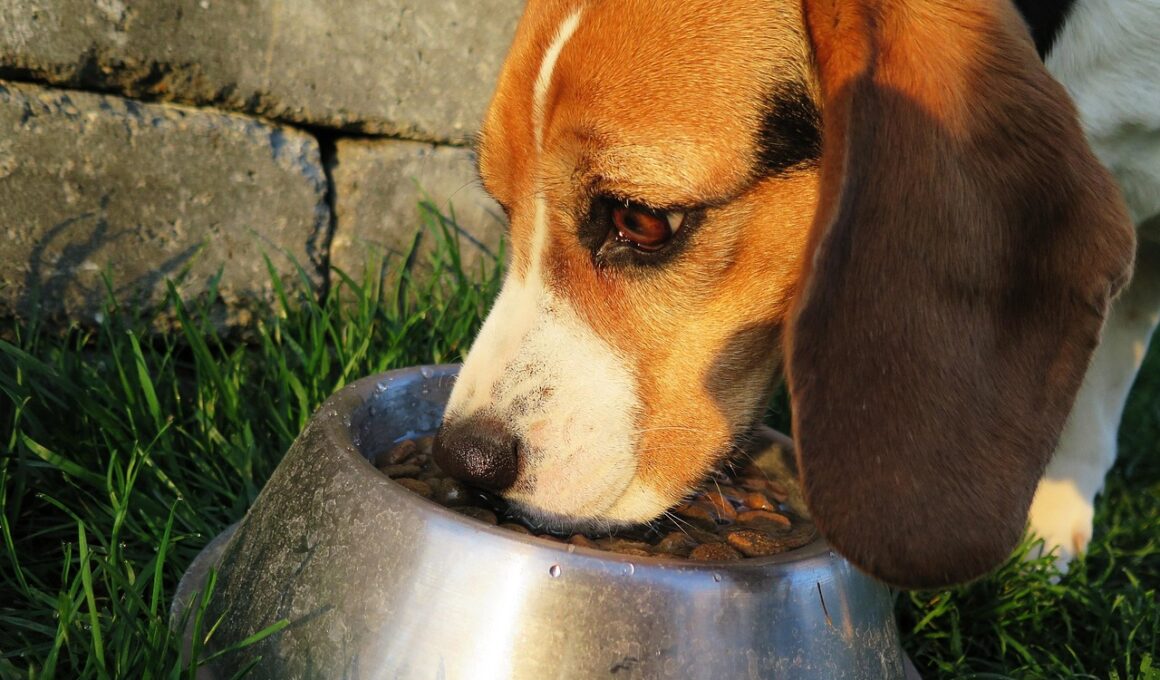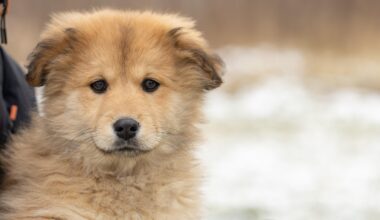Feeding Your Dog While Camping in the Wild
When heading out for a wild camping adventure with your dog, feeding your furry friend should be a priority to ensure their health and happiness. Planning ahead is crucial for successful outdoor meals. Start by selecting nutritious dog food that is lightweight and easy to pack. Dry kibble is optimal as it doesn’t require refrigeration and can be stored conveniently. Additionally, consider reserving special treats to reward your dog during hikes. Store your dog’s food in airtight containers to protect it from moisture and wildlife. Each meal should be served in a designated area away from your sleeping quarters to prevent attracting unwanted animals.
Be mindful of your dog’s dietary restrictions and always bring enough food for the entire trip, plus extras in case of emergencies. If you’re unsure about portion sizes, consult with your vet beforehand. Staying hydrated is equally important, especially during hot summer months. Bring plenty of fresh water for your dog and a collapsible bowl for easy feeding. In remote areas, consider bringing a water purification system or tablets to ensure access to safe drinking water. Remember that camping may also alter your dog’s feeding schedule; stay flexible, adapting to their needs as you explore the wilderness. Always remember to clean up any food leftovers to keep wildlife at bay.
Homemade Dog Meals for Camping
If you’re passionate about your dog’s nutrition, preparing homemade meals for camping can be a rewarding experience. Consider cooking simple recipes that can include ingredients such as brown rice, vegetables, and lean meat, all of which provide a balanced diet. Store meals in reusable containers that stack easily in your camping gear. Ensure these meals are cooked thoroughly before packing to prevent any health risks. Avoid adding spices, especially onions and garlic, which can be harmful to dogs. It’s also a good idea to keep meals easy to digest, as excessive physical activity might upset your dog’s stomach. Any uneaten food should be stored carefully to prevent spoilage.
Incorporating food into your dog’s routine while camping helps maintain their energy levels, especially during long outdoor excursions. Keep an eye on your dog’s reaction to new foods or changes in dietary habits, as some dogs may be sensitive to specific ingredients. While on the trail, rewarding your dog with small portions of their favorite snacks can encourage good behavior and keep them motivated. Snacks like carrots, green beans, or specially formulated dog treats serve as great energy boosters during hikes. Additionally, always monitor their water intake, especially in warmer climates, to prevent dehydration and maintain a healthy energy level throughout your adventures.
Choosing the Right Treats
Choosing the right treats for your dog while camping can enhance their experience and strengthen your bond. Opt for natural and holistic treats that align with your dog’s dietary needs and preferences. Small, nutrient-dense bars or dehydrated meat can provide energy without overloading their system. Avoid treats with artificial ingredients that may not be suitable during outdoor activities. For training purposes, consider using low-calorie options so that your dog remains focused without excessive energy spikes. Make sure to keep your treats sealed and stored properly to prevent spoilage and contamination from insects or wildlife. Your camping experience should be enjoyable for both you and your furry companion.
Think about incorporating interactive feeding options, like treat-dispensing toys, which can keep your dog engaged during downtime. These toys can help reduce boredom, especially when you’re setting up camp or taking breaks. While some dogs are content relaxing, others may need extra stimulation, so consider varying the types of treats or meals you bring. A mix of chewy and crunchy options can maintain your dog’s interest in their food. Rotating their treats will not only make meal times exciting but also contribute positively to their overall health. Stay vigilant to avoid overindulging your dog, as camping stress can lead to changes in eating habits.
Keeping Meals Clean and Safe
While camping, it’s essential to practice safe food management for yourself and your dog. Always adhere to regulations by storing food in animal-proof containers and keeping them away from your sleeping area. This prevents wildlife encounters while ensuring a clean campsite. Wash your dog’s feeding gear thoroughly after each use, and rinse off any food residues to avoid attracting pesky critters. This practice not only protects your possessions but also assists in protecting the local wildlife. Educating yourself on how to minimize your pet’s impact on nature is integral for responsible outdoor adventures. Always leave no trace by disposing of all waste properly during your stay.
Finally, don’t forget to consult local regulations regarding dogs in wilderness areas. Some national parks and wildlife reserves have specific rules about pets to protect local fauna. Every camping trip is an opportunity to teach your dog about appropriate behavior in the wild. Regardless of where you go, ensuring your dog enjoys their meals while remaining safe, healthy, and entertained is key. Embracing these feeding tips while camping will foster a successful outdoor experience for you and your beloved pet. Happy camping adventures await you and your furry friend! Your bond will only grow stronger as you explore the great outdoors together.


